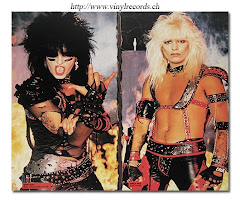Monday, September 28, 2009
Boyz In the Hood
In the film "Boyz in the Hood" masculinity is portrayed in two main ways. The first way is by being a gangster, like Doe-boy and his crew. The second way is by being a responsible adult, like Tre's father. The way masculinity is portrayed by being a gangster goes hand in hand with what Don Sabo writes about in his article "Sports in Prison." The way to prove masculinity is to be "hard." In prison the only way to be hard is to be good at sports or even better yet be bigger and more intimidating than the others. Outside of prison, like in "Boy's in the Hood," There are more options on how to be hard because there is more available. Outside of prison, it doesn't matter too much how big you are because anyone can carry a gun. What matters is how willing you are to pull out that gun. This leads me to my next point, alcohol is something that defines masculinity. Not only because TV commercials are targeted towards men, but also because it gives you "liquid courage." When a gang member is drinking he is more likely to pull out his gun and pull the trigger, something considered a very masculine act in "Boyz in the Hood." Other things that go along with this gangster masculinity are lowriders, blunts, sagging, jerry-curls, blue or red, Crenshaw Ave. on a Friday night, and disrespect for women. I want to talk about the last point, disrespecting women. I believe that in this context disrespecting women serves to make a man more masculine because they are placing themselves above the women. On the other hand, respecting women makes you a real man. For example, Tre's father respects his X-wife even though they are not together anymore and disagree on many issues. He is a real man because he is responsible. He has a respectable job, plays the role of an active father, tries to instill valuable messages into the community, and thinks things through. In the movie there is two different ways masculinity is portrayed and the one which is dangerous is the thug masculinity. Everything that goes along with being a thug is dangerous, while everything that goes along with being a real man is positive for the community. It is interesting how these two polar opposites both define masculinity. Race plays a role in this film because these two groups of masculine men are most evident in the African American community. In white families it is expected that the father holds down a good job and takes care of the kids, so it doesn't really make them masculine. The reason that it is a real accomplishment in the African American community, especially during the early 90's in South Central, is because many of the fathers are gangsters and don't take care of their kids because they are dead, in jail, or are just out of the picture. Women characters in this film are portrayed as passive agents. They are in the film because of some relationship they have to a man in the film. The only two women that play active roles in my opinion are Tre's mother and Tre's girlfriend. I think the reason that Tre's mom is an active agent is because she was married to a real man. She was not someone who was going to get pushed around by the thugs, rather she was going to be with a man who listened and treated her like a real person. She makes decisions as to how to raise Tre and gives her opinion on what she thinks is best for Tre's future. Tre's girlfriend is also an active agent because the relationship between her and Tre mirrors the one of Tre's parents. We see Tre's girlfriend as an active agent because she makes decisions, such as when to have sex. The character that strikes me as the outsider-within is the cop. Like Tre's dad, the cop is fed-up with the gangs and violence in the community, but unlike Tre's dad he tries to remove himself from that community to create change. While Tre's dad tries to help them out, the cop tries to lock them all up and make their lives difficult.
Subscribe to:
Post Comments (Atom)


No comments:
Post a Comment
Note: Only a member of this blog may post a comment.